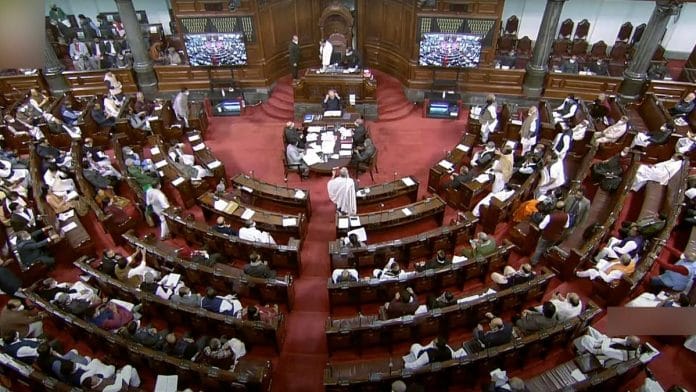Thank you dear subscribers, we are overwhelmed with your response.
Your Turn is a unique section from ThePrint featuring points of view from its subscribers. If you are a subscriber, have a point of view, please send it to us. If not, do subscribe here: https://theprint.in/subscribe/
In India, where politics plays an integral role in shaping the nation’s future, the capabilities of aspiring politicians are important for nation building. Just as any other professional requires a well-crafted resume to secure a job, aspiring peoples’ representatives and future legislators too need ‘political resumes’ that showcases their suitability for a claim to candidacy in elections to represent the people in governance.
Some of the requirements could be education, political experience, constituency work and demonstrated social responsibility. Unfortunately, almost all political parties look for a “ winnable” candidate in whom the above requirements are not a priority but additional preferred attributes. The criteria for selection of candidates are based more on factors such as religion, caste, sub caste, money power, possibly muscle power and such. Moreover, in India at any time nearly 20% of legislators have criminal cases registered against them. While all these factors cast doubts on the quality of elected representatives and their ability to govern, the most damaging could be the money power. Candidates who spend huge sums of money to get elected, concentrate on recovering those “expenses” while in the government during their tenure, proliferating corrupt practices and impeding progress and development. While allowing a party to come to power such candidates with very little capabilities to contribute effectively to policy making and administration make for incapable governments. The problem is compounded when the executive in India has to be selected from among these elected representatives.
The executive branch in Indian consists of the president, vice president, and a council of ministers, led by the Prime Mnister (PM) in the center and the Governor, Chief Minister (CM) and the council of ministers in the federal states. I wonder if you have noticed the difference between the executive in the USA and India. In the USA, the POTUS is free to choose the executive from professionals even with no political back ground or leaning (of course, approval from the legislature is necessary for the appointments). The members in the executive need not be part of the congress or the senate. In India, the council of ministers who re part of the executive, for political reasons have to be from the elected representatives (LS or RS in the center and Assembly or legislative council in the states). The hands of the Indian PM are tied to bring in real professionals in the executive. Less than a handful of professionals are still inducted in the executive through the RS, spawning dissatisfaction among elected LS MPs who see it as a chance lost. Hence, political compulsions limit these choices, rendering the executive weak and incompetent for the duties in these times.
The Indian executive is in need of a makeover from what it had been in last half a century. Governance is becoming less and less about secularism and caste and more and more about progress, development, economy, jobs etc. In the setting of the global village that this world has become today, members of the executive have to constantly interact with trade, businesses, corporates, educationalists, farmers, technology experts, domain experts etc. at national and international levels. They also have to actively participate in public debates and proactively attend events such as the DAVOS world economic forum and submits like the COP. The participants need to have deep domain knowledge and be able to articulate ideas and policies convincingly.
Palanivel Thiagarajan, minister for Information Technology and Digital Services, TN, Central minister for electronics and information technology Ashwini Vaishnav, EAM Subramanian Jaishankar (ex IFS) are some professionals in harness with the current executive, that come to mind.
The other day, I was listening to an interaction by a budding politician in TN, Annamalai Kuppusamy, an ex IPS officer interacting with students of IIT, Chennai on AI. He dexterously and competently handled the subject. He said that more technology experts like graduates from IIT etc. should join politics to take India forward in its journey to progress and development. The executives should be discussing domain matters and not politics of religion, caste and such. Probably, he is right. It is time for India to bring in a changeover in its executive at center and state levels.
Tailpiece: More professionals fighting and winning elections, will strengthen the hand of the PM and CMs to formulate a more purposeful and erudite executive. Hopefully this is a changing landscape in Indian politics.
(The author is an Indian Army veteran and a contemporary affairs commentator. The views are personal. He can be reached at kl.viswanathan@gmail.com)
These pieces are being published as they have been received – they have not been edited/fact-checked by ThePrint.


